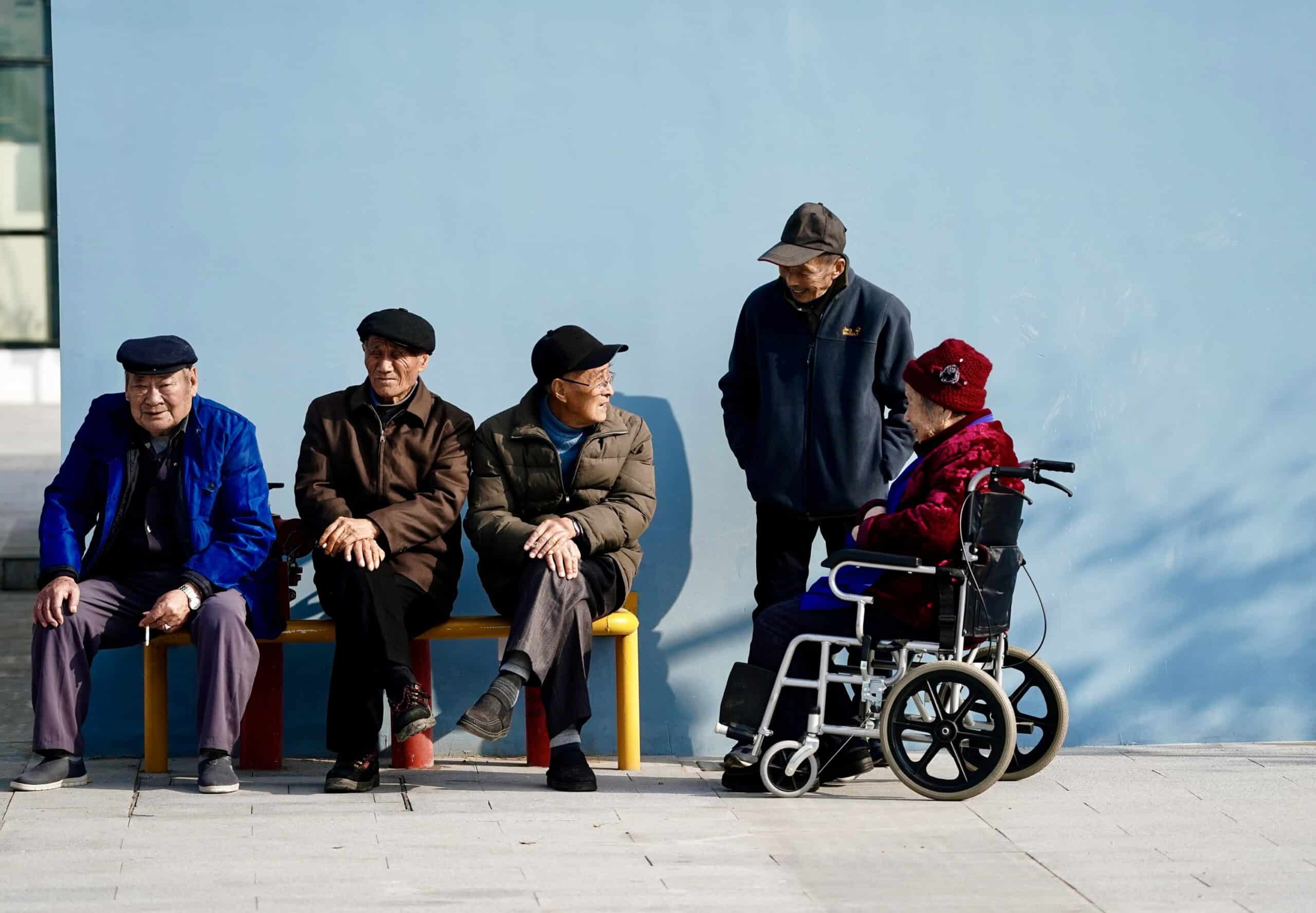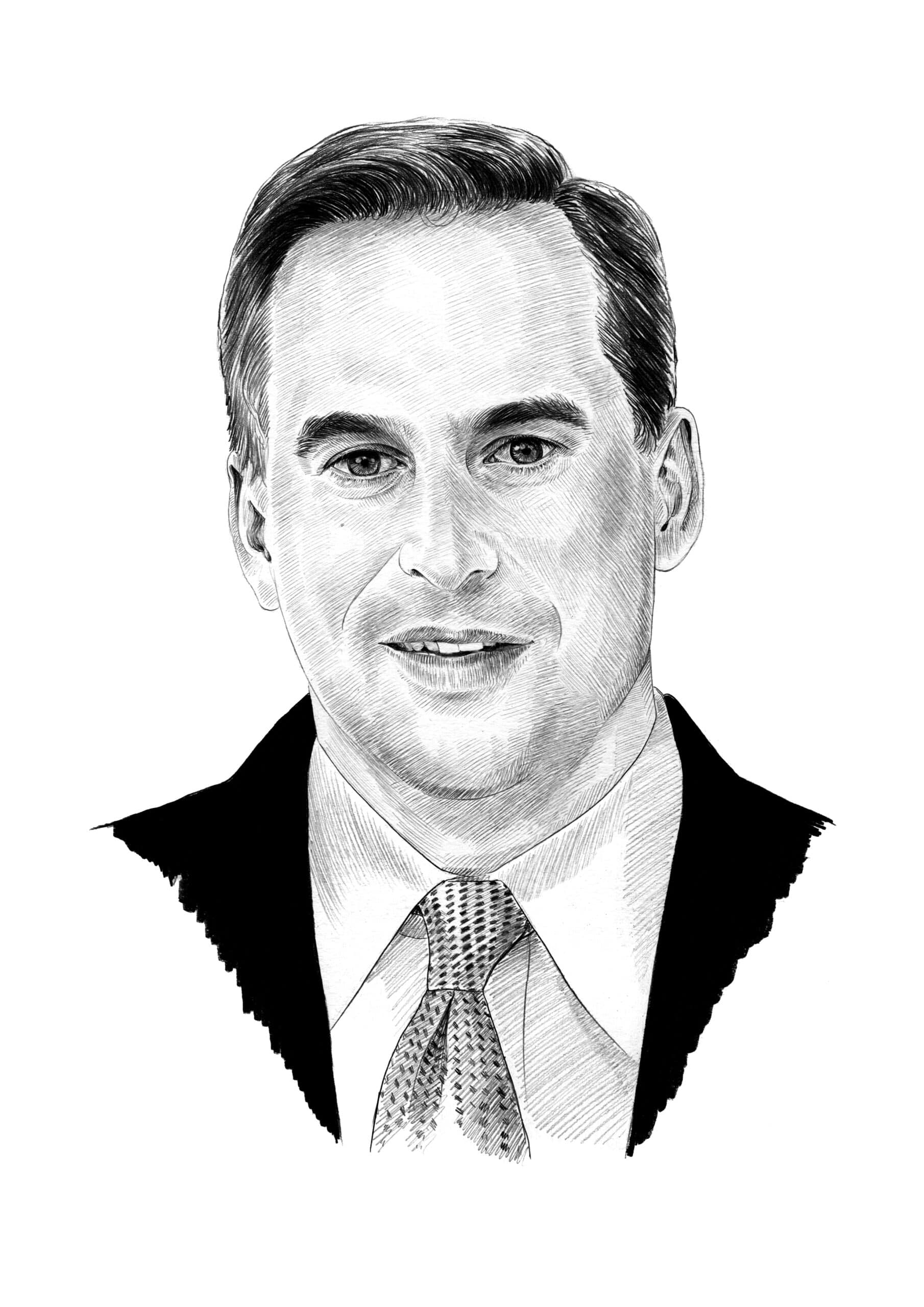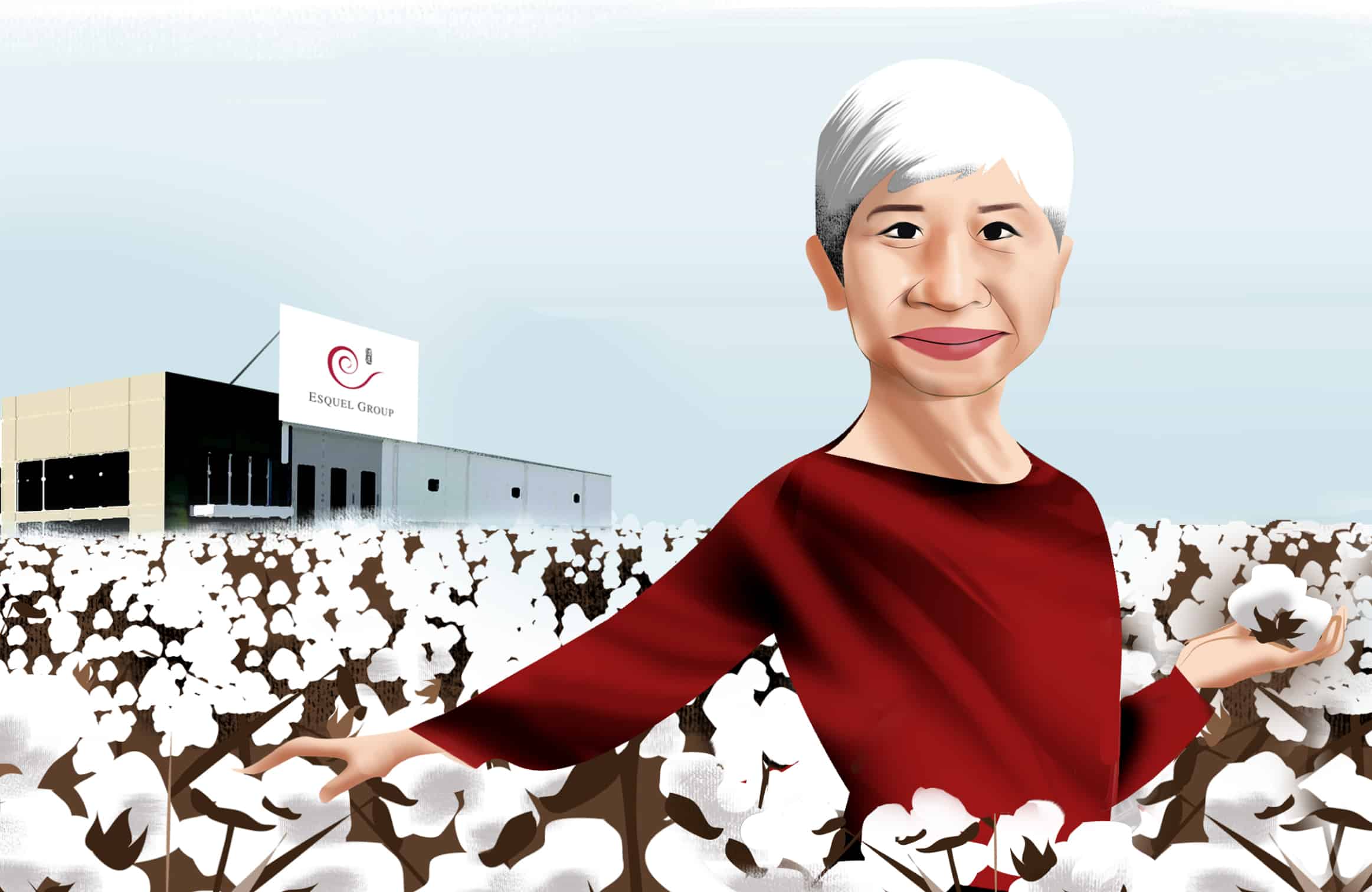
When Marjorie Yang took the stage in a grand, wood-paneled room at Hong Kong University, she was in high spirits. The 65-year-old business executive joked about being a nerd (she graduated from M.I.T. with a math degree), told stories about smoking cigarettes out of dormitory windows at boarding school, and explained to the assembled students that she had volunteered to speak first at the event because, as a rare woman among the ranks of Hong Kong tycoons, she was always fighting to make her voice heard.
With 35,000 employees producing 100 million garments each year, her company, Esquel Group, is one of the world’s largest shirtmakers and a supplier for premium brands like Patagonia, Calvin Klein, and Tommy Hilfiger. A few minutes into her speech, Yang even made a quip about her nickname: “The Cotton Princess from Xinjiang.”
It was September 2017, and to the international community, Xinjiang was not yet a flashpoint of human rights and forced labor concerns. At the event, no eyebrows were raised as Yang described doing business in Xinjiang — the northwest region of China that currently supplies the vast majority of Chinese cotton and where many now assert a genocide against the Uyghur ethnic minority is unfolding. In fact, the company’s work in Xinjiang was a source of pride for Yang: After being founded by Yang’s father in 1978, Esquel Group was the first garment company from outside mainland China to set up ginning and spinning mills in Xinjiang.

“One of my most proud achievements was that we managed to get a ginning license” in Xinjiang, Yang said in her speech at Hong Kong University, describing how in the 1990s, the region’s cotton industry was a state monopoly and the farmers were paid for their work in IOUs, which often meant that they weren’t paid at all. “When we went there, we paid cash. We managed to completely change the market mechanism in the cotton trade in Xinjiang. We are a small player, but one player can be a catalyst of change.”
For the past two decades, Yang has been recognized as a pioneer of corporate social responsibility (CSR) in China. A graduate of M.I.T. and Harvard Business School, she has been asked to give speeches all over the world with titles like “When Values are Tested” or “How to Build a Purposeful Business.” Esquel has also routinely been given awards like “Best Quality Vendor” or “Best in Class Corporate Social Responsibility Award” from the high end American brands it supplies. For a time, everyone wanted to hear about the company’s unique approach to both environmental and labor standards — Esquel seemed a beacon for the belief that CSR is not only the right thing to do, but also good for business.
“A huge part of the social capital of this company is its reputational capital,” says William Kirby, a professor at Harvard Business School who has written extensively about Esquel, visited their factories, and met with the company’s senior management, including Marjorie Yang. “They are thought of as the cleanest operation, and CSR is the key to success.”
A huge part of the social capital of this company is its reputational capital…They are thought of as the cleanest operation, and CSR is the key to success.
William Kirby, a professor at Harvard Business School
But in the same month as Yang’s Hong Kong University speech, the first English language reports on Uyghur detention camps in Xinjiang were published. And last year, after four years of information slowly trickling out about repressive policies and forced labor in Xinjiang, the U.S. Commerce Department placed Changji Esquel Textile Co. Ltd., one of the company’s Xinjiang subsidiaries, on the what is known as the U.S. Entity List, effectively sanctioning the company.1The Federal Register citation here: A Wall Street Journal article and an Australian Strategic Policy Institute (ASPI) report have linked Changji Esquel Textile to forced labor, and Esquel Group has also been criticized for its partnership with Xinjiang Production and Construction Corps (XPCC), a quasi-military group that is involved with business activities in the region and has been sanctioned by the Treasury Department for human rights abuses.
On September 3, 2021, The Wire published a response letter from Georgetown history professor and Xinjiang scholar James Millward, who offered a rebuttal to Overholt’s letter.
Because it was placed on the Entity List, Esquel’s subsidiary is now prohibited2American firms would need special U.S. government approval to ship goods to the sanctioned firm from buying some U.S. goods (such as machine components or even computer software), and the public naming dealt a serious blow to the company’s reputation. For example, Nike, which was named in the ASPI report as sourcing from Esquel, issued a statement saying that it has no relationship with any of Esquel’s facilities in Xinjiang. The Wire reached out to other brands sourcing from Esquel for comment and received no response.
“Just being on the list has a chilling effect,” says Daniel Fisher-Owens, a lawyer at Berliner Corcoran & Rowe, which specializes in sanctions. “When companies do business with other companies, they screen them for risk factors. Even if doing business with the named company isn’t technically illegal, many companies will say, ‘Nevermind — that is too risky for us. They must be a bad guy in some way.’”
Esquel Group declined repeated interview requests from The Wire but on July 6, Esquel sued the U.S. Department of Commerce, arguing that it was erroneously included on the U.S. Entity List and as a result has suffered severe harm and lost business from major brands, including Michael Kors, Nike and Banana Republic. A year ago, Esquel had released a statement asserting that the company was “deeply offended” by the sanctions and insisted, “We absolutely have not, do not, and will never use forced labor anywhere in our company.” Now, the company is seeking relief from what it says was economic and reputational harm that it suffered after by being placed on a U.S. sanctions list. In April 2020 — before the sanctions — it sold its stake in the XPCC joint venture.
While experts contacted by The Wire say Esquel’s commitment to labor rights and sustainable business is more than corporate branding, few expect the company to win this battle. The likelihood that Esquel will succeed in removing itself from the U.S. Entity List is low, according to several lawyers specializing in sanctions, especially given the ever escalating tensions between the U.S. and China and the increasing scrutiny on businesses operating in Xinjiang.

Photo by Visual China Group via Getty Images
“This company has proven itself over decades to be socially responsible,” says Christopher Marquis, a professor of Sustainable Global Enterprise at Cornell’s Johnson Graduate School of Management who has visited Esquel’s factories. “But now it has been caught up in the Xinjiang case. It is a contradiction that is interesting to unpack.”
Indeed, for those who have been following Esquel Group — and Marjorie Yang — for years, the company’s situation demands further investigation. Given that the accusations against Esquel are far from clear-cut, has the U.S. government gone too far? Or does Esquel Group’s current predicament further support the idea that no company — no matter how well intentioned — can navigate business in Xinjiang without compromising its values?
“This is an interesting opportunity to think about where the line is on forced labor,” says Laura Murphy, a professor of human rights and contemporary slavery at Sheffield Hallam University in the U.K. “And to think about what it means for a company to work in a place where there is such extraordinary repression of a minority. I do not want to exonerate Esquel, but much more information is needed to make a judgment.”
A FAMILY BUSINESS
Esquel Group was founded in 1978, the same year that China opened up to the world. When Deng Xiaoping launched his signature reform and opening up policy, which allowed foreign investors to enter the Chinese market, Yang Yuan Loong, Marjorie Yang’s father, jumped at the opportunity.
The family had a long history in the textile industry in China. Yang’s grandfather was a silk trader in Shanghai in the 1920s, where he navigated his business through the turmoil of the Nationalist period, Japanese occupation and China’s civil war, before relocating his family to Hong Kong in 1952.

Source: Esquel Group
From an office in Tsim Sha Tsui, Yang Yuan Loong3He is also known as Yang Yuanlong negotiated a compensation trade agreement with a garment factory in coastal Jiangsu province — the first of its kind in the U.S.-China garment trade, according to the company — whereby Esquel provided equipment, as well as technology and expertise, in exchange for garments. In 1979, Esquel made its first shipment of garments to the United States.
From there, Esquel grew rapidly as China opened even further to direct foreign investment, building several manufacturing facilities in Gaoming,4In Guangdong Province Guilin and the Yangtze River Delta. The company set up offices in New York, Tokyo and London, and built relationships with top American brands, like Brooks Brothers and J. Crew.5Marjorie Yang was once married to Dickson Poon, the entrepreneur whose company had the Ralph Lauren franchise in Hong Kong.
Esquel’s distinguishing factor was the high quality of its goods. Unlike others in the garment business, Esquel decided early on to have vertically-integrated supply chains, meaning the company controlled every part of the supply chain rather than contracting out to suppliers. As Yang explained in a 2001 article in The Wall Street Journal about the decision, “When I control my materials I control my own destiny. Very few people can take away my bowl of rice.”
“I thought I was missing out on being on Wall Street…but really I came back to the biggest economic miracle.”
Marjorie Yang about the decision to take over Esquel
The vertical integration also meant Esquel Group had tighter control over labor conditions, which it said were far better than the industry standards. Terry Townsend, former executive director of the International Cotton Advisory Committee, an intergovernmental industry body, says the company’s claims about working conditions always rang true to him. “I did get the impression, in housing and labor conditions, that it was better,” Townsend says. “People wanted to be part of the Esquel Group.”
Cornell’s Marquis and Harvard’s Kirby, both of whom have visited Esquel’s factories, agree. “I have visited scores of factories in China. Sometimes it amazes me what they’ll let you see — fumes, dangerous conditions, etc. Esquel is a really professional, well-run company,” says Marquis, adding that reputation matters a lot more when a company is a family business. “If your name is on the door, and you are hoping to pass it down, you take [labor conditions] seriously,” he says.
Yang Yuan Loong decided to pass down the company to his daughter in 1995, after he became ill with cancer.6He died in 2007. Yang, who got her MBA from Harvard, was working in investment banking in New York at the time and, according to speeches she has given, was reluctant to move back to Hong Kong and give up her ambition to become one of Wall Street’s “masters of the universe.”
“I thought I was missing out on being on Wall Street,” she has said of the decision to take over Esquel, “but really I came back to the biggest economic miracle.”

Source: Esquel Group
Indeed, under Yang’s leadership, Esquel Group grew into an apparel giant with more than $1 billion in annual revenue, according to analyst estimates, though as a privately held firm its financial reports are not public. In what seemed like a shrewd business move at the time, Yang established the company’s first spinning mill in Xinjiang, which is home to a unique supply of Extra Long Staple cotton — a luxurious fibre named for its unique length. A few years into her tenure, Esquel formed a joint venture with XPCC, which allowed it to obtain more cotton from farmland in Xinjiang. With its supply of high quality but affordable cotton secured, Esquel’s Xinjiang operations transformed the company into the largest woven shirt maker in the world.
Yang also doubled down on the company’s commitment to labor and environmental standards. Over the past decade, Esquel says it has cut down its energy consumption by 20 percent and its unit water consumption by 39 percent while also investing in worker training by starting programs, for example, to teach employees basic coding. She has summarized her ambitious goals for the company as two-fold: “to fight climate change and close the wealth gap.”
“She really does have a rock strong belief in doing the right thing,” says Harvard’s Kirby. “Esquel has been caught in the crossfire of the U.S.-China confrontation. But the tragedy in Xinjiang is so much bigger than one company.”
THE VALUES TEST
The Commerce Department’s Entity List was originally created to sanction companies involved in producing or exporting weapons of mass destruction, and at first, it was filled with Indian and Pakistani companies engaged in nuclear proliferation. But after 9/11, foreign policy priorities shifted, and the U.S. brokered a deal with the two countries: if they cooperated with the U.S. in the “War on Terror,” Indian and Pakistani companies would be removed from the list.
Later, the list was populated with a companies from a number of countries, including Iran, that had been accused of being involved in nuclear proliferation. But in the late Obama years, priorities shifted once again: the Commerce Department started to abandon the focus on disarmament, using the Entity List instead as a broader tool of foreign — and some say economic — policy. Now, many Chinese companies like Esquel are on the list, and the U.S. government’s stated reason is often human rights violations.

A Commerce Department spokesperson told The Wire they decline to comment on Entity List deliberations, but said the Esquel subsidiary was placed on the Entity List “for engaging in activities contrary to the foreign policy interests of the United States through the practice of forced labor involving members of Muslim minority groups in the [Xinjiang] region.”
The evidence cited against Esquel stems from a 2020 ASPI report entitled “Uyghurs For Sale,” which draws from government press releases to conclude that Changji Esquel Textile participated in a government job fair in Xinjiang, as well as a 2019 Wall Street Journal article, which reports that the company took 34 Uyghur workers who had been transferred from southern Xinjiang. These government sponsored Uyghur labor transfer programs have been widely cited as a source of forced labor in the region.
Esquel denies that they have ever hired Uyghur workers from government labor transfer programs. Company executives claim that Esquel conducted its own interviews with the Uyghur workers after being introduced by Chinese officials. According to the company’s statement, Esquel set up the Changji plant as “a highly automated spinning mill back in 2009, employing skilled technicians who are paid at least 2-3 times the minimum wage level.”
But Johnson Yeung, who works for the Clean Clothes Campaign in Hong Kong, says the company’s defense isn’t convincing and that it is a red flag anytime a company uses government job fairs in Xinjiang. “Doing interviews by themselves doesn’t mean much,” Yeung says. “The government didn’t force the company to hire the workers, it forced the workers to transfer. The company can say they are not locking people in jail, but there is a Chinese saying, ‘The gentleman doesn’t see what the butcher does’ — that doesn’t mean that the gentleman isn’t complicit.”
Indeed, given the backdrop of mass internment and the environment of extraordinary repression, Laura Murphy, at Sheffield Hallam, believes that no companies should be operating in Xinjiang. That being said, however, she adds that if Esquel is actually engaged in independent hiring processes in Xinjiang — as it says it is — and not state-sponsored labor transfers, that could be an interesting example for companies operating in the region to follow.
Regardless of what is happening in their own factories, associations with the XPCC in itself is problematic, and has been problematic for a long time. There is a carceral side of the XPCC — they are running camps.
James Millward, a history professor at Georgetown
“If Esquel is doing independent labor recruitment, that could be a middle path,” Murphy says. “But I haven’t seen any evidence of anyone actually doing that, so it’s unclear if it is possible.” Companies, for instance, are often forced to do the government’s bidding, which can include using Uyghur workers provided by the government.
Labor transfers aside, Esquel’s relationship with the XPCC raises its own red flags. The XPCC is a strange hybrid of an economic and military entity, and it is responsible both for running camps where Uyghurs are held as well as farms where cotton is produced. “Regardless of what is happening in their own factories, associations with the XPCC in itself is problematic, and has been problematic for a long time,” says James Millward, a history professor at Georgetown and expert on the Xinjiang region. “There is a carceral side of the XPCC — they are running camps.”
For some, this kind of relationship discredits all of the company’s public statements about social responsibility. “Esquel has exhibited a more sophisticated approach to public relations over the years than some of its competitors,” says Scott Nova, the executive director of the Worker Rights Consortium. “But its reported use of government-recruited labor in Xinjiang and its relationship with the XPCC — which are seen by researchers and human rights groups as indicators of forced labor — represent more meaningful data points than the company’s statements.”
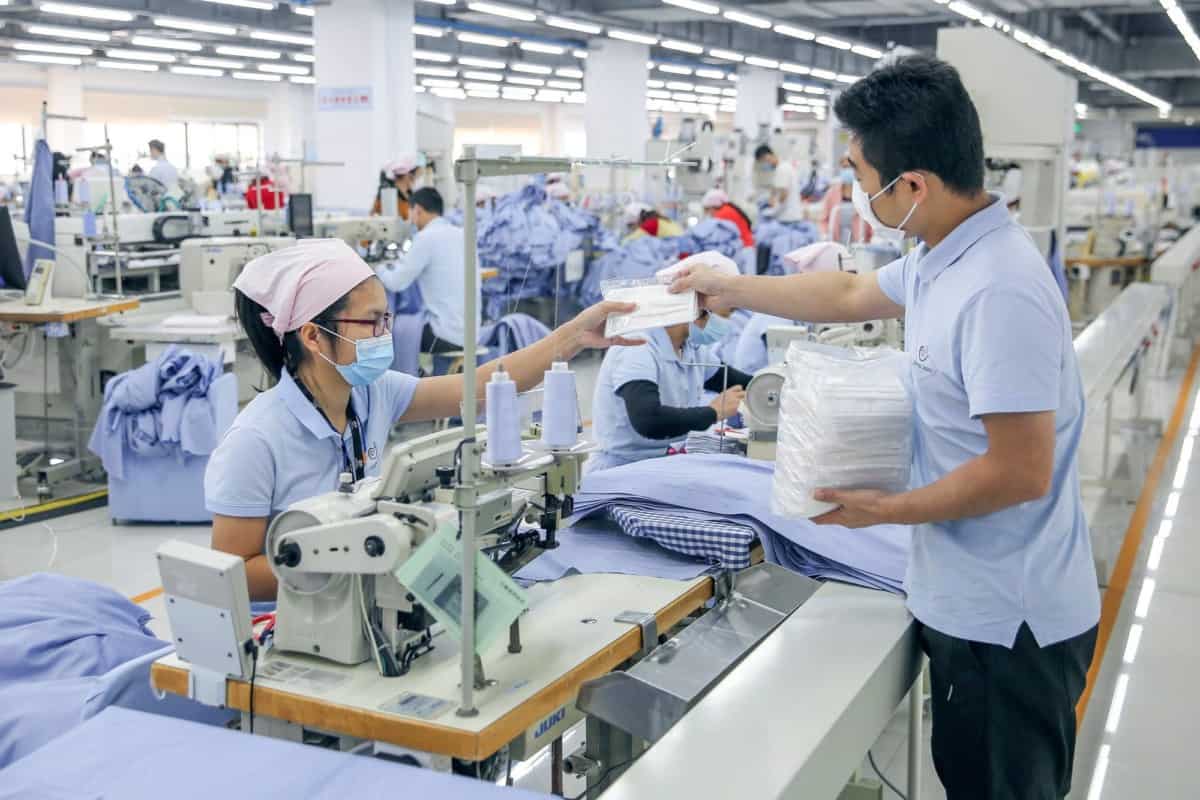
Source: Esquel group via Facebook
Esquel has been very outspoken and aggressive about its attempt to get off the Entity List, hiring several highly connected public relations, lobbying, and law firms, including TrailRunner International, and Akin, Gump, Strauss, Hauer & Feld, according to Axios reporting. In its lawsuit filed July 6, in U.S. District Court in Washington, D.C., Esquel’s lawyers argued that the company was falsely implicated in using forced labor in Xinjiang, and that world class auditors found no evidence of forced labor or coercion.
The process of getting off the Entity List consists of presenting evidence in front of an interagency committee chaired by the Commerce Department. But experts say the burden of proof for getting off the list is greater than that needed to be placed on the list — especially if it is a Chinese company in the current acrimonious climate. Plus, the Commerce Department won’t take Esquel’s word at face value and would likely demand some type of third-party verification or auditing process of the subsidiary in question.
“The decision goes through a committee,” explains Daniel Fisher-Owens, of Berliner Corcoran & Rowe. “A majority vote is required to be added to the Entity List, but a unanimous vote is required to get off. One of the things that is clear is that the Xinjiang issue has bipartisan support, so getting off the list may be even harder than usual.”
Moreover, given the political constraints in Xinjiang, many auditing firms have pulled out of Xinjiang in the last year, making it extremely difficult for Esquel to get the type of third-party transparency it needs to clear its name. So, with a low likelihood that it will be taken off the Entity List and with an already tarnished reputation, what is Esquel’s path forward?
One option is to exit Xinjiang and try to build up a supply chain in other Asian countries, such as Vietnam and Sri Lanka, where the company already has some facilities. But that would mean abandoning their decades of investment in Xinjiang. Plus, while the move may satisfy Western brands and the U.S. government, it would likely lead to backlash in China. Nike and H&M experienced this pitfall when they expressed concern about the situation in Xinjiang and said they wouldn’t source from the region: Chinese consumers swiftly boycotted them en masse and many e-commerce platforms even removed their products from their sites.
Esquel is basically being sanctioned for being Chinese… Esquel hasn’t done anything particularly wrong that anyone else hasn’t done. They are just caught up in the Xinjiang net.
Terry Townsend, former executive director of the International Cotton Advisory Committee
Another option would be to double down on Xinjiang and attempt to build up a bigger Chinese consumer base, which thus far, has not been a large part of its revenue. To Kirby, from Harvard, this kind of decoupling should be avoided.
“If Esquel shifted exclusively to China, that would be a shame,” he says. “You want a Chinese company that is cutting edge in terms of technology and CSR as a big part of the global market. We should be encouraging companies like Esquel.”
Indeed, for some, the Entity List outcome represents a lack of nuance from the U.S. government that, in the end, won’t actually help U.S. interests.
“Esquel is basically being sanctioned for being Chinese,” says Townsend, formerly of the International Cotton Advisory Committee. “Esquel hasn’t done anything particularly wrong that anyone else hasn’t done. They are just caught up in the Xinjiang net. But these embargoes are ultimately ineffective. It will not change Chinese behavior, because it is easy to divert cotton to the domestic market. China is big enough that they can absorb any trade ban.”
Moreover, American brands will have a tough time without suppliers like Esquel. According to Crispin Argento, the founder of the Sourcery, a sustainable sourcing company for cotton, “There is simply not enough cotton in the world to shift from non-Xinjiang cotton and produce the same volume of goods.” American suppliers, he says, “are kidding themselves if they want to not use Xinjiang cotton. Even a lot of Vietnam operations are Chinese owned. I tell brands that if you trace your cotton, you are going to find that a lot of your fiber comes from these compromised areas.”
Which is why, in the end, Esquel’s best move might be to wait things out. Babette Radclyffe-Thomas, a fashion consultant and journalist who focuses on the Chinese fashion industry, points to the case of Rana Plaza, a garment factory in Bangladesh that collapsed and killed over 1,000 people in 2013. Immediately following the disaster, the international community turned its attention to working conditions in Bangladesh — the tragedy sparked a campaign to get brands to pay compensation to the affected families, the creation of an accord regarding the safety of factory buildings in Bangladesh, and a broader discussion about transparency in garment supply chains. But, today, only a few years later, there is little focus on garment workers in Bangladesh.
“People have already forgotten about it,” says Radclyffe-Thomas, adding that the same could be true about Xinjiang in a few years.
Whatever happens, it seems likely that Marjorie Yang will continue to fight for her family business’s reputation. “A leader must have values but must also have the ability, as well as — and this is important — the courage, to stick with that conviction and carry through,” she said at a Columbia Business School lecture in 2016. “I think a lot of people have values, and they get tested, and they hear a lot of noise that says, ‘You can’t do that, it’s not good for business.’”
The question now is: for a company that has staked so much on its reputation, what is best for Esquel’s business?
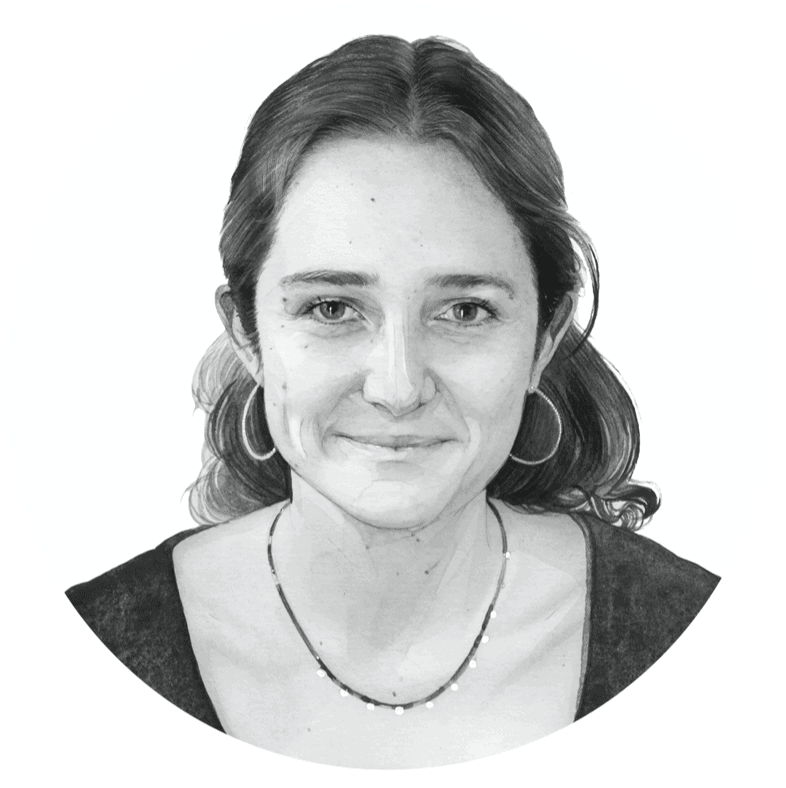
Katrina Northrop is a journalist based in New York. Her work has been published in The New York Times, The Atlantic, The Providence Journal, and SupChina. @NorthropKatrina

